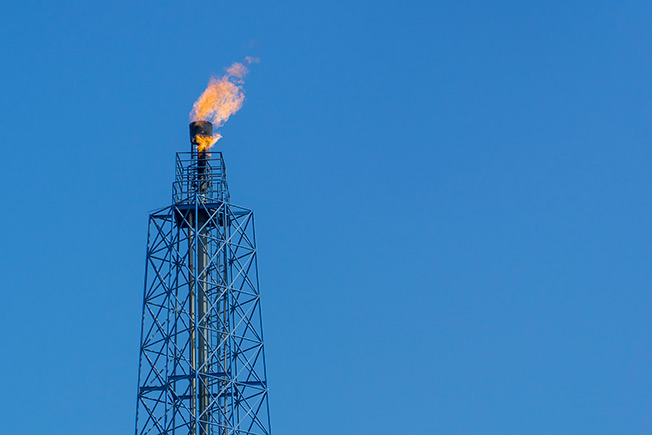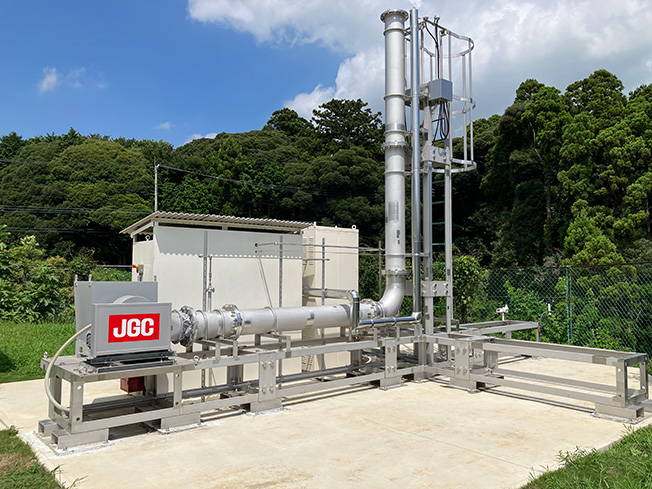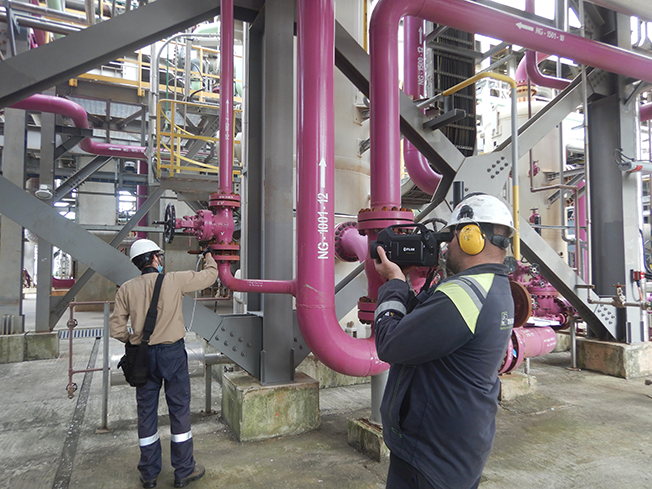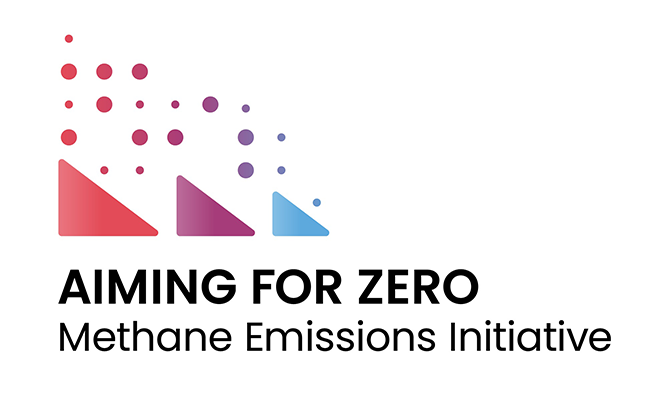The First Step Toward Low-Carbon/Decarbonization
GHG Emissions Quantification Service
The demand for low-carbon/decarbonization of resources and energy is accelerating as moves are made toward a sustainable society. In order to reduce GHG (Greenhouse Gas) emissions through low-carbon/decarbonization, it is necessary to understand the nature of the current GHG emissions.
The JGC Group, as a leading contractor in the field of natural gas plants, including LNG plants, brings together our extensive engineering capabilities to provide support for low-carbon/decarbonization through GHG emissions quantification services.

Start Point - Quantify GHG Emissions

In order to reduce GHG emissions to bring about low-carbon/decarbonization, it is necessary to first understand the current GHG emissions. However, GHG emissions calculations based on conventional emission factors has been questioned for their accuracy, especially in Europe and the United States. In particular, facilities that handle natural gas have a large impact on the environment due to its characteristic of emitting a large amount of GHG, so there is a growing awareness of the need for a method that better reflects the actual situation.
Methane Emissions Measurement Technology Evaluation Facility

Improving methane emissions measurement technology is particularly important to enhance the accuracy of methane emissions estimation, but measurement technology is still under development. For this reason, the JGC Group has established a methane emissions measurement technology evaluation facility at our Research & Development Center (Oarai-machi, Higashi Ibaraki-gun, Ibaraki) and provides a place to evaluate measurement technologies in order to develop the measurement technologies through wide-ranging collaboration with other companies.
Please refer to the news release.
Asia's First Comprehensive GHG Emissions Measurement Project

The JGC Group completed measurement project for GHG emissions, including methane, at its ammonia production site in Indonesia to improve the accuracy of a recommended guideline for greenhouse gas and carbon intensity accounting framework for LNG/Hydrogen/Ammonia project., which was developed through a public offering of Japan Oil, Gas and Metals National Corporation (“JOGMEC”) 'Survey for constructing a global MRV/CI methodology for GHG emission". This measurement is the first comprehensive measurement project in Asia and the first case of applying the Guideline as part of a JOGMEC project.
Please refer to the news release.
First Japanese company in Aiming for Zero, Targeting Methane Emissions

In February 2023, the JGC Group joined the Aiming for Zero methane emissions initiative, as a project of the Oil and Gas Climate Initiative (OGCI, an international organization leading the response to climate change in the oil and gas industry), the Aiming for zero is forcused on reducing methane emissions from the industry. Currently, more than 40 companies from Europe and the USA that provide Measurement Reporting Verification (MRV) and reduction solutions for methane are participating in the Initiative and are actively taking action to achieve zero emissions. The Group is taking positive action to achieve zero emissions and will continue to actively work on reducing methane emissions from the oil and natural gas industry through this initiative and others, and will accelerate its efforts to achieve a carbon-neutral society by 2050, seeing methane emissions reduction as an important step in the process of low decarbonization.
Please refer to the news release.
JGC Group Provides "HiGHGuardTM" as a Service for GHG Emissions Quantification.

We not only provide answers to various issues and questions related to GHG emissions quantification, but also make proposals for improvements regarding the implementation of GHG emissions quantification, and proposals for effective moves toward low-carbon/decarbonization, including measurement using instruments. Please contact to us if you are considering GHG emissions quantification not only for LNG plants but also for fossil fuel related plants such as natural gas processing plants and ammonia plants.




